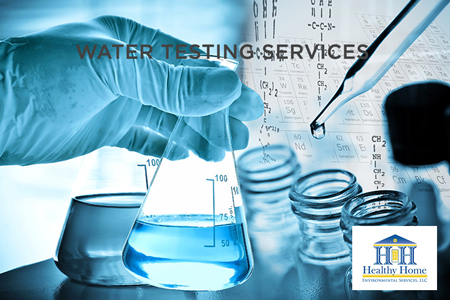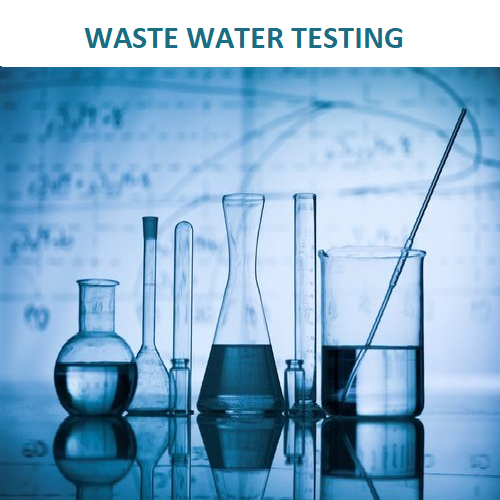Why You Must Choose Our Water Testing Service for Your Home
Why You Must Choose Our Water Testing Service for Your Home
Blog Article
Learn How Water Testing Can Discover Contaminants and Protect Your Family members's Wellness
Comprehending the importance of water testing is important for safeguarding your household's health and wellness, as our water supply can harbor unseen threats. By checking out the auto mechanics of water testing, one can reveal the invisible threats hiding in seemingly beautiful water sources.
Significance of Water Checking
Acknowledging the important role water plays in maintaining life, the value of water testing can not be overstated. Water is a basic resource, necessary for alcohol consumption, cooking, hygiene, and numerous commercial processes. Its high quality straight affects public wellness and health. Making sure that water is totally free from unsafe compounds is essential for preserving healthy and balanced areas and ecological communities.
Water testing acts as a proactive step to recognize prospective dangers that might jeopardize water quality. Through methodical analysis, it assists discover physical, chemical, and organic parameters that could present dangers to human health. Regular screening enables the very early detection of problems, assisting in timely interventions to avoid prevalent contamination and associated illness.
Additionally, water testing supports regulatory compliance, ensuring that water companies satisfy well established security requirements and guidelines set by governmental authorities. It fosters transparency and liability, developing public count on the water system. Screening gives important information that notifies water management strategies, enabling sustainable use and preservation of this precious source.
Basically, water screening is a vital tool that safeguards public health, makes certain regulative adherence, and advertises the sustainable monitoring of water resources. Its relevance in protecting both individuals and neighborhoods can not be taken too lightly.
Typical Water Contaminants
Amongst the various elements that can endanger water quality, usual water contaminants include a variety of physical, chemical, and biological substances that position significant threats to human wellness and the environment. Physical impurities usually entail debris or natural materials put on hold in water, which can affect clarity and taste. Chemical pollutants incorporate a vast variety important, including pesticides, herbicides, steels like lead and mercury, and commercial chemicals. These chemicals can infiltrate water supplies with farming drainage, industrial discharges, or leaching from pipelines and storage containers.
Biological impurities, largely microorganisms, infections, and protozoa, occur from human and animal waste getting in water supply. Virus such as E. coli, Giardia, and Cryptosporidium are notorious for creating gastrointestinal illnesses and can be specifically hazardous to young kids, the elderly, and those with compromised immune systems. Nitrites and nitrates, often coming from fertilizers, present one more health risk, particularly to babies, possibly leading to problems like methemoglobinemia or "blue baby disorder."
Furthermore, arising pollutants, including drugs and individual care products, have actually elevated concerns because of their determination and unknown long-lasting impacts. Recognizing these impurities is vital for executing effective water therapy methods and making certain risk-free drinking water.
Exactly How Water Screening Functions
Understanding the range of pollutants in water emphasizes the importance of effective screening techniques to secure public health. Water screening is a systematic process created to identify and quantify numerous impurities that might present risks to human wellness.
Chemical testing usually entails spectrometry or chromatography, both of which can recognize and measure particular chemical substances. Additionally, physical characteristics like turbidity, ph, and shade are assessed to provide understanding right into the general high quality of the water.
The accurate methodologies utilized in water screening rely on the details impurities of worry and the water's meant usage. By consistently applying these strenuous screening procedures, researchers and public health and wellness authorities can guarantee the security and top quality of water, thereby securing communities from possible health threats.
Selecting the Right Examination
Just how does one determine one of the most ideal water test for their demands? Choosing the right examination involves recognizing both the details characteristics of the water resource and the potential contaminants that might exist. The initial step is assessing the water resource-- be it local, well, or surface area water-- as each has distinctive dangers. Municipal water may call for testing for disinfectant results, while well water might need testing for nitrates, microorganisms, and heavy steels.
Following, take into consideration ecological elements and recent occasions. Neighboring agricultural activities may demand screening for chemicals and herbicides, whereas commercial areas might need checks for chemical toxins. Furthermore, any changes in water appearance, preference, or smell need to motivate certain testing for usual contaminants like lead, chlorine, or biological microorganisms.
Professional water testing solutions use detailed kits that target a wide variety of possible contaminants. These packages commonly line up with requirements established by the Environmental Defense Company (EPA) or regional health departments. For an extra customized technique, talking to a water top quality specialist can provide insights into which specific examinations are essential based on regional concerns and private health and wellness demands, making certain the defense of your family's wellness.

Maintaining Water Security

In enhancement to testing, correct upkeep of water supply plays a crucial role. This includes evaluating and servicing plumbing systems, storage space containers, and septic tanks to avoid leaks or backflow that could present pollutants - Water Testing Service. Using water filtering systems developed to attend to details local concerns can further guard against contaminations, offering an extra layer of protection
Public understanding and education and learning are just as vital in keeping water safety and security. additional info Neighborhoods must be educated about possible dangers associated with neighborhood water sources and the required actions to alleviate them. Urging public participation in water safety efforts promotes a cumulative duty that improves general efficiency.
Eventually, a detailed strategy that integrates routine testing, system upkeep, and neighborhood involvement is vital in guarding water top quality. By doing so, families can be visit the site assured of secure and clean water, protecting their health and health.

Verdict
Routine water screening is essential for determining pollutants such as germs, hefty metals, and chemicals that present wellness risks. By analyzing water examples, unseen dangers can be identified, guaranteeing the provision of safe alcohol consumption water. This aggressive method helps develop a healthier atmosphere and facilitates notified decision-making pertaining to water safety. Picking appropriate screening approaches and keeping alertness in water high quality are important action in guarding public health and guaranteeing the well-being of all home participants.
Comprehending the relevance of water screening is crucial for securing your household's health, as our water supply can harbor undetected risks.Water screening offers as a positive procedure to recognize possible threats that might endanger water top quality.Moreover, water screening supports regulatory compliance, making sure that water service providers satisfy well established safety and security standards and guidelines established by governmental authorities. Local water may call for screening continue reading this for disinfectant results, while well water may need screening for nitrates, germs, and heavy metals.
Routine water screening is an important part in maintaining the top quality of water sources, allowing timely interventions prior to contaminants reach hazardous degrees.
Report this page